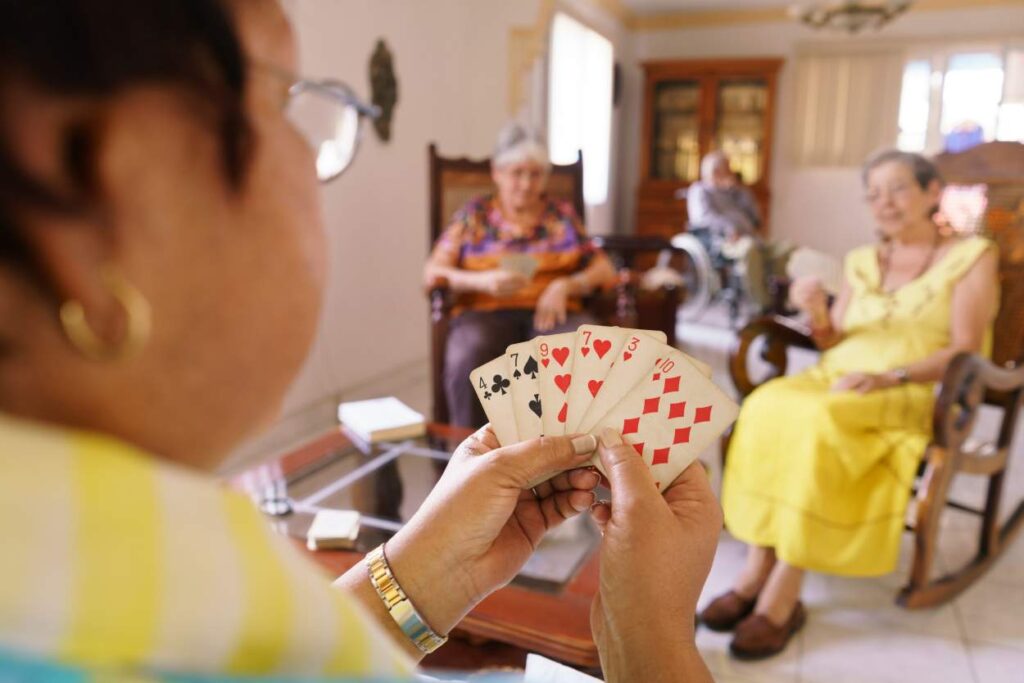
Patients with dementia experience problems with memory and cognition, making some board games challenging. However, the right board games, can actually be successfully played and enjoyed. There are a couple important things you need to pay attention to. Firstly, board games should be visibly colorful or striking, and the players should be able to handle the pieces. When picking games make sure to choose the larger scaled versions. Additionally, it may be helpful to have dementia patients use items such as playing card holders. Secondly, choose games that are familiar to the patient. You’ll reap greater rewards when a dementia patient can choose a game familiar from childhood or from playing with their own children. Finally, it’s important to understand that dementia is progressive and what game suits a patient during one stage of the disease, may not at a later stage.
10 games for adults with dementia
- Bingo– It’s highly familiar and focuses on cognition without too much stress.
- Noughts and Crosses– It’s such a familiar game that this can be enjoyed even in the later stages of dementia.
- Snakes and Ladders– Its bright colors make the board easy to see.
- Call to Mind– This board game was developed by an occupational therapist, specifically for players with dementia. Call to Mind describes itself as a “specially designed board game that helps get to know and understand the thinking, likes, and dislikes of someone with dementia.â€
- 20 Questions– It focuses on what players can remember, rather than what they can’t.
- Dominoes– This is an extremely easy game, even if it’s not familiar.
- Draughts– Its a strategy game but it’s both striking to look at and simple to play.
- Card Games– There are a plethora of card games that are suitable for patients with dementia. Use large playing cards and maybe even a card holder.
- Batik– It encourages both communication and manual dexterity.
- Uno– It may be new to players but it can be made more or less simple with adaptations to the rules. It may be more successful with patients in the earlier stages of dementia.
